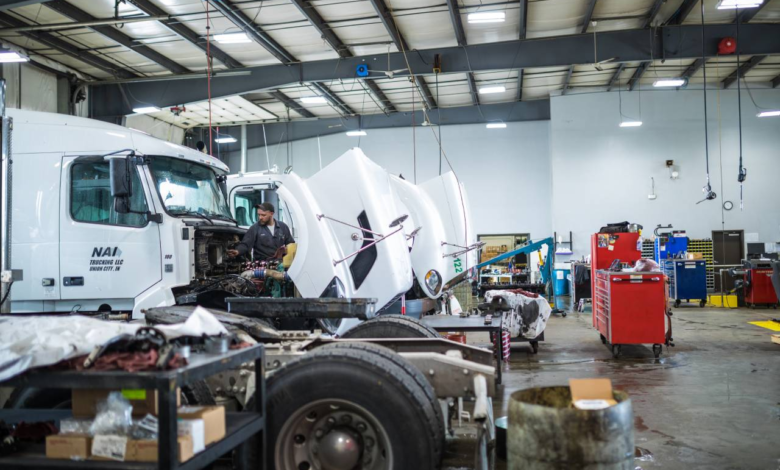Guide to Effectively Managing Fleet Truck Maintenance

Managing a fleet of trucks is a big responsibility. Keeping them in good condition ensures smooth operations, prevents unexpected breakdowns, and extends their lifespan. Proper maintenance also improves fuel efficiency and safety.
In this guide, we will go through key strategies to effectively manage fleet truck maintenance. By following these steps, businesses can avoid unnecessary downtime and keep their fleet running efficiently.
Schedule Regular Inspections
One of the most important steps in truck maintenance is conducting regular inspections. This helps in identifying small issues before they turn into serious problems. Fleet managers should create a checklist for daily, weekly, and monthly inspections.
Drivers should check basic things like tire pressure, fluid levels, brakes, and lights before every trip. Mechanics should conduct deeper inspections on engine performance, transmission, and suspension systems regularly.
Partnering with a Reliable Mechanical Repair Shop
No matter how well-maintained a truck is, breakdowns can still happen. This is why it’s crucial to have a trusted mechanical repair shop to handle necessary repairs. A professional shop has experienced mechanics who can quickly diagnose issues and fix them before they cause major disruptions.
When choosing a repair shop, fleet managers should look for one with good reviews, certified mechanics, and experience working with heavy-duty trucks. A reliable repair shop can also offer preventive maintenance services, ensuring that minor problems don’t escalate into costly repairs.
Importance of Oil Changes and Fluid Checks
Oil and other fluids play a crucial role in the performance of a truck. Regular oil changes keep the engine running smoothly and prevent overheating. Transmission fluid, coolant, brake fluid, and power steering fluid should also be checked and replaced when needed.
Fleet managers should follow the manufacturer’s recommendations for oil change intervals and ensure that mechanics use high-quality oils and fluids. Neglecting these essential tasks can lead to engine damage and expensive repairs.
Managing Tire Maintenance
Tires are one of the most important parts of a truck. Worn-out or underinflated tires can cause accidents and reduce fuel efficiency. Fleet managers should ensure that tire pressure is checked daily and rotated regularly to prevent uneven wear.
Tire alignment and balancing should also be performed periodically. Investing in high-quality tires and replacing them before they become unsafe can save money in the long run by reducing fuel costs and preventing accidents.
Handling Truck Engine Rebuilds
Sometimes, despite regular maintenance, a truck’s engine may wear out and require major repairs. In such cases, a truck engine rebuild can be a cost-effective solution compared to buying a new truck. A rebuild involves replacing worn-out engine components while keeping the original engine block.
This process restores engine performance and extends the truck’s lifespan. However, it requires skilled mechanics and high-quality parts. Fleet managers should ensure that the engine rebuild is done by a trusted repair shop to get the best results.
Keeping Maintenance Records
Keeping detailed records of all maintenance activities is essential. This includes inspections, repairs, fluid changes, and part replacements. Proper documentation helps in planning future maintenance, tracking expenses, and ensuring compliance with safety regulations.
Using fleet management software can make record-keeping easier by providing automatic reminders for servicing schedules.
Conclusion
Effective fleet truck maintenance is key to running a successful transportation business. Regular inspections, scheduled servicing, and working with a trusted mechanical repair shop can prevent unexpected breakdowns.
Taking care of essential tasks like oil changes, tire maintenance, and fluid checks ensures that trucks perform well and last longer.





